4 Anti Corrosion Methods For Anchor Bolts and 3 Anti-Corrosion Anchor Bars Types
Time:2022-11-12From:sinorock View:
Geotechnical anchoring technology makes use of the high tensile strength of steel to stabilize rock or soil mass and has become one of the effective methods to improve geotechnical stability. Therefore, the durability of anchor bars is crucial in practical applications. The factors affecting the durability of anchor bars are material, construction process, and environmental corrosion, of which the most influential is environmental corrosion. This blog will introduce the common causes of corrosion in anchor bars, the corresponding anti-corrosion measures, and the common types of anti-corrosion anchor bars.
The Conditions Under Which Corrosion Occurs in Anchor Rods.
1. The local area composition of the anchor rod metal surface changes, resulting in a different potential difference, and finally causes corrosion.
2. Unevenness within the metal causes a rupture of the oxide film on the metal surface, and the rupture is prone to rust and corrosion. Different concentrations of oxygen in the soil layer, causes different polarity in different parts, resulting in corrosion.
3. The geological environment of the ion concentration changes, which will also cause the anchor body battery, to result in corrosion.
From the above, we can see that the main factors that cause the corrosion of anchor bars are material and environment. Environmental factors are mainly corrosion caused by groundwater. Corrosion type is mainly comprehensive corrosion, localized corrosion, and localized corrosion and hydrogen embrittlement or stress-induced corrosion.
Corrosion of anchor bars directly affects the service life and construction cost. Therefore, the protection of anchor bars should be strengthened.
Anti-Corrosion Measures
1. When selecting materials, preference should be given to low-carbon steel of reliable quality, good toughness, and not susceptible to stress and hydrogen embrittlement.
2. When installing anchor bars, alternating wet and dry environments should be avoided as much as possible, and adopt drainage systems to reduce the corrosion rate.
3. During construction, control the water-cement ratio or cement grout concentration, and the crack width of the cement barrier should be less than 0.1mm to improve the anchor denseness and impermeability of the solids (pay attention to the connection sleeve will affect the thickness of the grouting).
4. If it is applied in a permanent construction project, hot-dip galvanizing anchor bars or epoxy coating anchor bars can be taken to deal with that case. Avoid wear and tear on the coating during transportation or installation.
Anti-Corrosion Anchor Bars Types
1. Stainless Steel Self Drilling Anchor Bolt
The stainless steel self-drilling anchor bolt is made of alloy steel materials and has a super-high anti-corrosion effect. It is suitable for complex and weak geological conditions and can resist corrosion in air or chemical corrosion conditions.
.jpg)
2. Duplex Coating Rock Bolt
The duplex coating is a combination of hot-dip galvanizing and epoxy coating. Firstly, the product is hot-dip galvanized, and then the epoxy powder is sprayed on the surface. The anchor bolt has better anti-corrosion performance and longer service life after two kinds of anti-corrosion processes. It can not only resist ordinary chemical corrosion but also work in an acidic environment and electrochemical corrosion with stray currents.
The duplex coating rock bolt can adapt to various corrosive environments if the coating is not destroyed. It is generally used in water conservancy projects, underwater tunnels, subway tunnels, and permanent support of some important buildings which are affected by groundwater for a long time, and it is also widely used in harbors, docks, and marine buildings which are subject to seawater erosion.
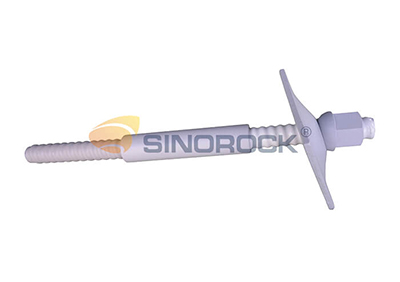
3. Hot-dip Galvanizing Rock Bolts System
Hot-dip galvanizing rock bolt has good anti-corrosion properties. It forms a protective layer by putting clean-surface products into molten galvanizing zinc, which has a good effect on the anti-corrosion of steel.
By immersing the anchor bar and accessories in liquid zinc for a certain time, the atoms can penetrate and diffuse each other, thereby forming an iron-zinc alloy layer, which is dense, uniform, firmly bonded, bright, and corrosion resistant. Hot-dip galvanizing is an electrochemical anti-corrosion method, which hinders further corrosion through insoluble chemical substances produced by the interaction between zinc and concrete solution.
Hot-dip galvanizing rock bolts can be used in permanent or semi-permanent support projects. They are resistant to acid and alkaline mist corrosion and are often used in projects with complex environments and high requirements for service life.
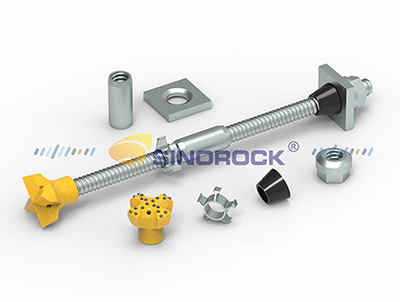
Summary
Anchor bars play an important role in slope engineering, ground and foundation engineering, and tunnel and underground engineering, and affect the economy and safety of the project.
Sinorock can provide high-quality anti-corrosion anchor bars and tailor the product types to meet our client’s needs, making the geotechnical anchoring project safer and more efficient.
latest news
-
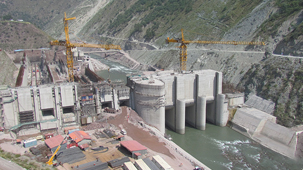
- What Are the Applications of SDA Bolts in Hydropower Stations?
- Time:2025-08-21From:This Site
- Learn how self-drilling anchor bolts enhance slope stability, tunnel support, and dam reinforcement in complex geological conditions at hydropower stations. Optimize hydropower projects with efficient, cost-effective, and eco-friendly solutions.
- View details
-
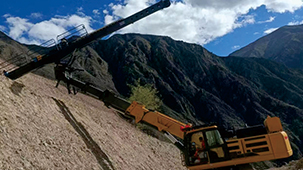
- Slope Stabilization with SDA Bolts: Benefits & Applications
- Time:2025-08-19From:This Site
- Discover how self-drilling anchor bolts (SDA bolts) provide superior slope stabilization for highways, railways, and tunnels. Learn their key benefits, installation process, and real-world applications in loose or collapsible soils.
- View details
-
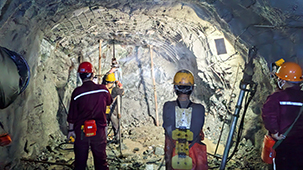
- How Self-Drilling Rock Bolts Enhance Tunnel Support in Fractured Rock?
- Time:2025-08-15From:This Site
- Discover how self-drilling rock bolts enhance tunnel support in fractured rock. Learn their benefits, installation steps, and real-world applications for safe, efficient tunneling.
- View details
-
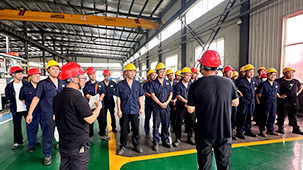
- Sinorock 2025 Quality Month | Strengthening Quality Foundations, Empowering Product Excellence
- Time:2025-08-13From:This Site
- Sinorock’s 2025 Quality Month, themed “Strengthening Quality Foundations, Empowering Product Excellence,” successfully concluded, reinforcing our commitment to superior product quality.
- View details
-
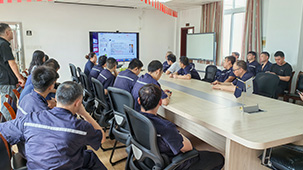
- Sinorock Safety Month 2025 | Everyone Speaks Safety, Everyone Can Respond
- Time:2025-07-03From:This Site
- Sinorock Safety Month 2025, centered on the theme "Everyone Speaks Safety, Everyone Can Respond - Spot Workplace Hazards," has wrapped up successfully!
- View details
-
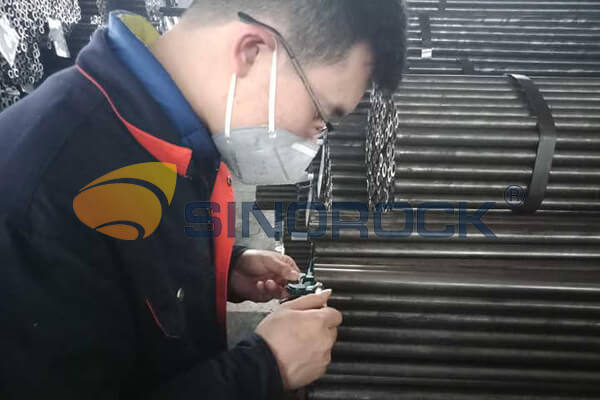
- Quality Control: the Vital Factor of A SDA Bolt Factory
- Time:2025-01-09From:This Site
- Sinorock’s comprehensive quality control system, from supplier management to outgoing inspections, ensuring the highest standards for self-drilling anchor bolts in construction.
- View details
-
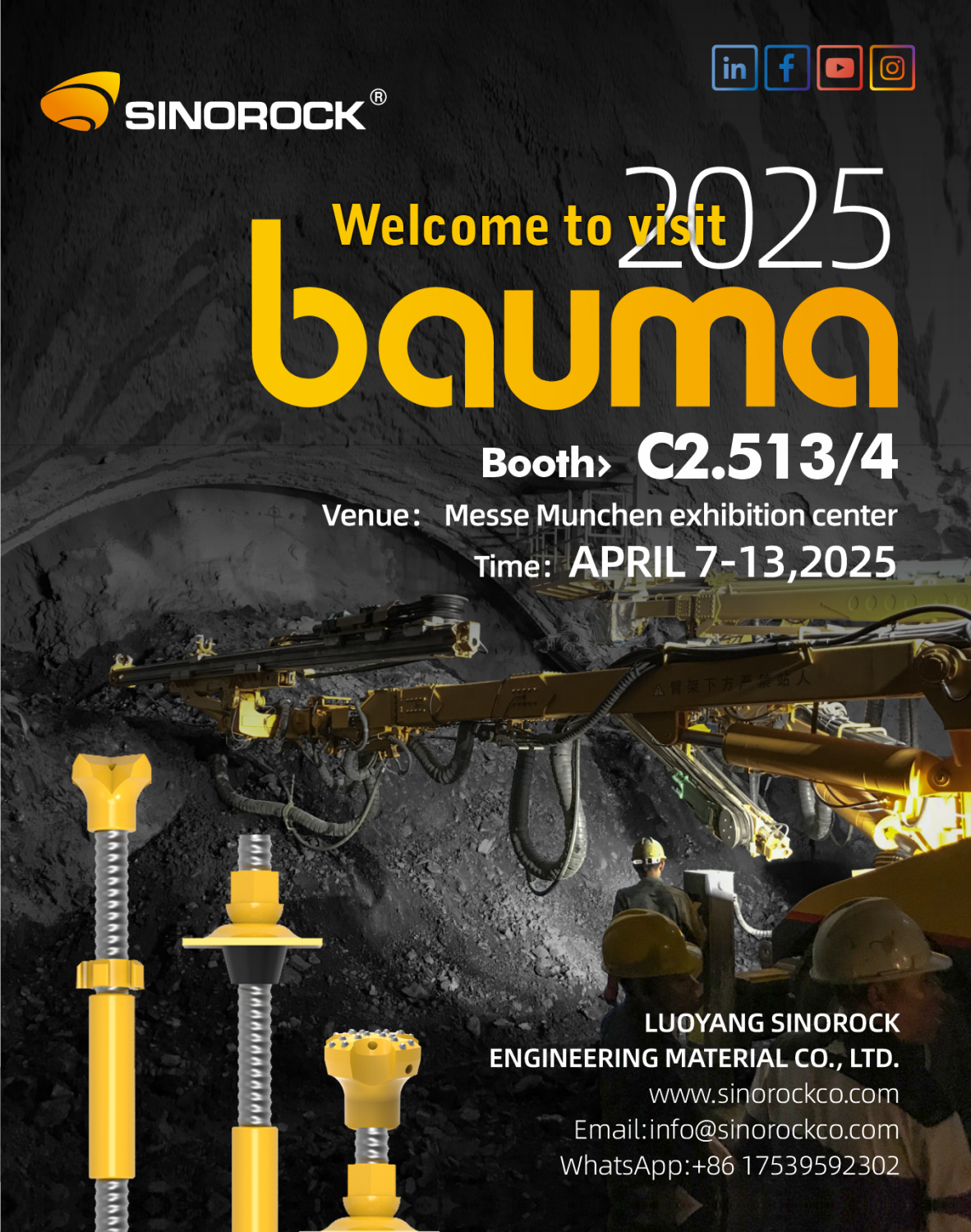
- Sinorock Invites You to Explore Proven Self-Drilling Anchor Bolt Solutions at bauma 2025
- Time:2025-03-07From:This Site
- From April 7–13, 2025, explore Sinorock’s Self-drilling anchor bolt solution at Booth C2.513/4 in Hall C2 of the Messe München Exhibition Center (Munich, Germany).
- View details
-
.jpg)
- SINOROCK to Attend EXPOMINA PERÚ 2024 in Lima, Peru
- Time:2024-08-10From:This Site
- Sinorock to Attend EXPOMINA PERÚ 2024 in Lima, Peru
- View details
-
.jpg)
- SINOROCK to Participate in MINING AND METALS CENTRAL ASIA 2024
- Time:2024-08-08From:This Site
- SINOROCK to Participate in MINING AND METALS CENTRAL ASIA 2024
- View details
 Download
Download 


